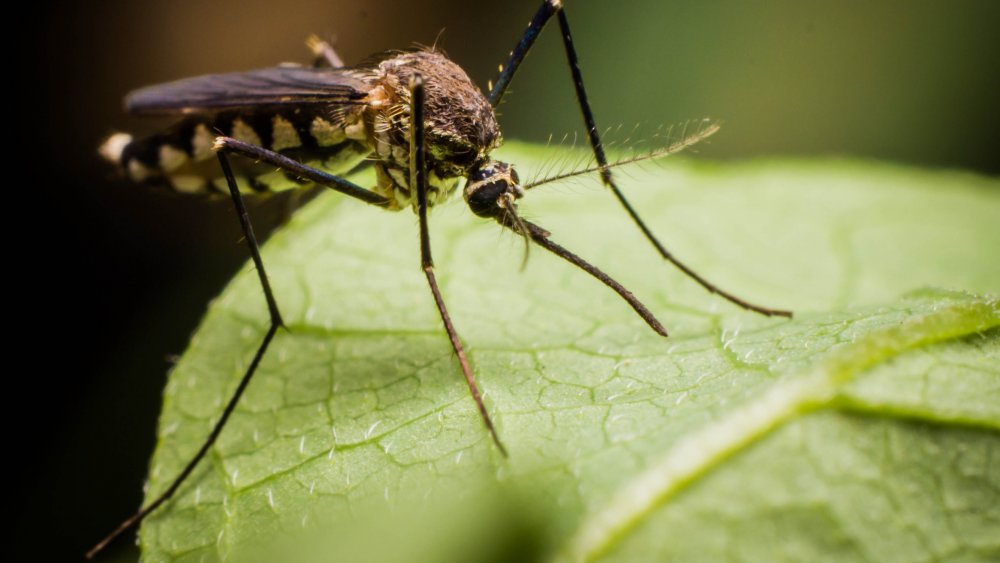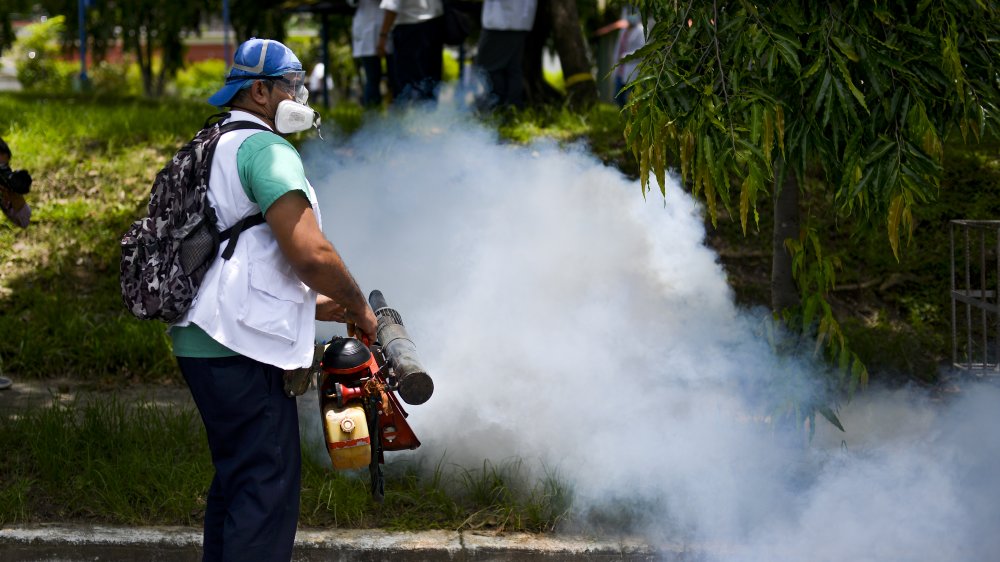The Messed Up History Of Dengue Fever
A mosquito bite causes one of the most common deadly diseases in the world. Dengue fever, according to the Centers for Disease Control and Prevention (CDC), is a virus, carried and spread by an infected Aedes mosquito. That's the same mosquito that can also spread the Zika virus. The species is especially prevalent in tropical areas. Dengue itself is common in more than 100 countries. The United Kingdom's National Health Service (NHS) said regions where dengue is common include parts of Southeast Asia, the Caribbean, India, South and Central America, Africa, the Pacific Islands, and Australia. UK mosquitos do not spread dengue, though there have been instances when the mosquito, considered an invasive species, have entered countries where dengue isn't common. An estimated 3 billion people live at risk of contracting dengue. In places where dengue is prevalent, the disease is often a leading cause of illness.
The CDC said there are four different kinds of dengue viruses, and so some people may get the disease up to four times in their lifetime if they're unlucky. While generally considered a mild condition, people do die from dengue. About 400 million are infected with dengue every year, with around 100 million getting sick. An estimated 22,000 people die each year of severe dengue. The European Center for Disease Prevention and Control explains that many of those who do get sick from dengue are children, so the virus has become a significant cause of death and illness for children in those areas.
You'll feel feverish and in pain
Many of dengue's symptoms can be mistaken for a severe case of flu, it seems. According to the NHS, symptoms tend to develop quickly, within five to eight days of being infected. People who get dengue generally run a high-grade fever, feel hot or shivery, have a severe headache, and feel pain behind their eyes. They experience muscle and joint pain, a widespread rash, and a loss of appetite. Some people report they've also experienced nausea and vomiting. Most symptoms last a week.
While most dengue patients don't have to be admitted to the hospital, some do develop dengue hemorrhagic fever. This is a far more severe case of the virus and can be fatal. The CDC explains that patients suddenly experience severe abdominal pain and vomiting, a change in temperature, and even a change in mental status, becoming irritable or confused. The afflicted often have cold clammy skin as well. Unfortunately, the risk of a more severe form of dengue rises if you've already been infected before.
Even though dengue is common in many parts of the world, there's no specific treatment or vaccine for it. Most treatment plans focus on addressing symptoms. And even though some countries have approved a vaccine called Dengvaxia, there are significant risks connected to the medication. World Health Organization (WHO) warns it can increase the possibility of infection for those who have never had dengue before.
Keep the mosquitos away
The best ways to prevent dengue, said the WHO, are to prevent mosquitoes from spreading, and to wear protective clothing. If you're traveling in an area where dengue is common, it's a good idea to cover your extremities. Wear pants or long-sleeved shirts, and spray insect repellent. In countries such as the Philippines — which, CNN reports, recorded its highest volume of cases in 2019 — the government runs television ads during the rainy season to remind people to stop mosquitos from breeding. People are asked to throw away stagnant water or to cover barrels of standing water so mosquitos don't lay eggs. Insecticides may even be sprayed to kill the bugs, per the WHO. Because outbreaks occur every year, the scientific community continues to research possible ways to prevent dengue.
There might be a silver lining to dengue, however. Reuters wrote that scientists in Brazil discovered the spread of COVID-19 is slower in areas where there was a dengue outbreak in the last year. The unpublished study hypothesizes dengue could provide "some level of immunity" against COVID-19. But don't go running off to get bitten by a mosquito now. The study has not yet been vetted. You really don't want to choose between death via respiratory illness or death via high-grade fever.


